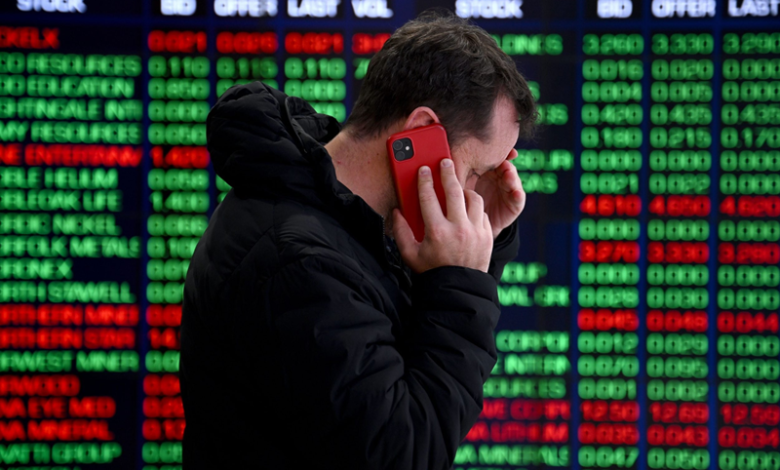Tokyo Stock Market Crash: Nikkei 225 Sees Historic Plunge Amid US Recession Fears

News Mania Desk/Agnibeena Ghosh/5th August 2024
In a dramatic turn of events, Tokyo’s stock market has experienced its most significant drop ever, driven by escalating concerns about the US economy. On Monday morning, the Nikkei 225 index plummeted by 12.40%, marking a historic decline of 4,451.28 points to settle at 31,458.42. Simultaneously, the broader Topix index fell by 12.23%, losing 310.45 points to end at 2,227.15.
Since its peak on July 11, when it reached 42,426.77, the Nikkei 225 has lost a staggering 113 trillion yen ($792.32 billion), representing a 27% decrease. This sharp drop follows a dismal end to last week’s trading on Wall Street, where the Dow Jones Industrial Average fell by 1.5% due to unexpectedly weak US job market data for July.
European stock markets also closed notably lower last week, reflecting widespread global concern about economic stability. The shockwaves from this dismal data have reverberated worldwide, with Japan’s stock market hit particularly hard. Adding to the turmoil, the Japanese yen has surged to seven-month highs against the US dollar, exacerbating the situation for Japanese exporters.
In response to the plummeting stock prices, Japanese Finance Minister Shunichi Suzuki has stated that the government, in collaboration with the central bank, is closely monitoring the situation. “It’s hard to say what is behind the decline in stocks,” Suzuki commented, acknowledging the gravity of the situation.
The massive sell-off triggered a ‘circuit-breaker’ intervention on the Osaka Exchange, pausing futures trading for 10 minutes in an effort to stabilize the market. Despite these measures, investor sentiment remains deeply unsettled, with ongoing concerns about potential weakness in the US economy.
The negative trend has not been confined to Japan alone. Across Asia, markets have been similarly affected. Hong Kong’s Hang Seng index dropped by 2.5% to 16,519.78, and Australia’s S&P/ASX 200 declined by 3.8% to 7,637.40. The semiconductor sector, heavily weighted in global markets, saw significant losses, with South Korea’s Kospi plummeting 9.3% and Taiwan’s Taiex falling 8.4%. Notably, Taiwan Semiconductor Manufacturing Co, the world’s leading chip maker, saw its shares fall by 9.8%.
In Japan, technology shares were particularly hard hit, with Tokyo Electron’s stock diving 18.48% to 22,055 yen and Advantest dropping 15.84% to 5,313 yen. The automotive sector was also impacted, with Toyota’s stock tumbling 13.65% to 2,232 yen.
Amid this turmoil, the Bank of Japan’s recent interest rate hikes and the potential for further increases have added to market uncertainty. In contrast, the US Federal Reserve has indicated the possibility of an interest rate cut as early as September. This divergence in monetary policy is contributing to the volatility in global markets.
Daiwa Securities attributed the Tokyo market’s losses to “deepening concerns over the uncertain US economy.” IwaiCosmo Securities noted that weaker-than-expected US employment data had heightened fears of a slower-than-anticipated economic slowdown. Additionally, the yen’s appreciation against the dollar and fading expectations for strong financial results from exporters have weighed heavily on the market.
Analysts, such as Kyle Rodda from Capital.com, highlight that the rapid appreciation of the yen is also leading to a significant deleveraging effect, where investors are liquidating assets to cover losses from leveraged trades, particularly those involving US technology stocks.
As global markets continue to grapple with these challenges, the full impact of these economic developments will unfold in the coming weeks.






